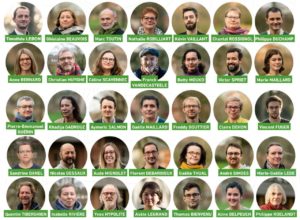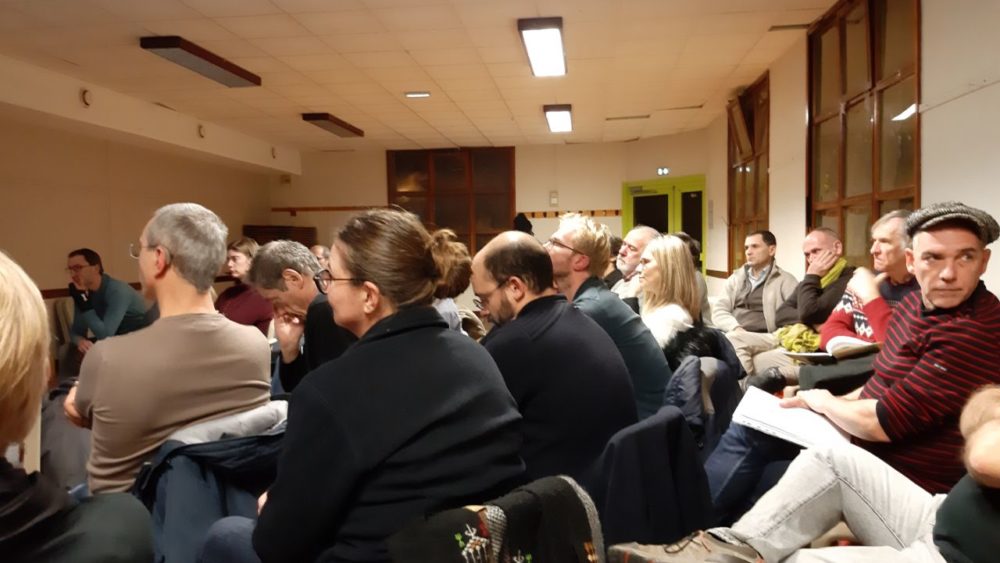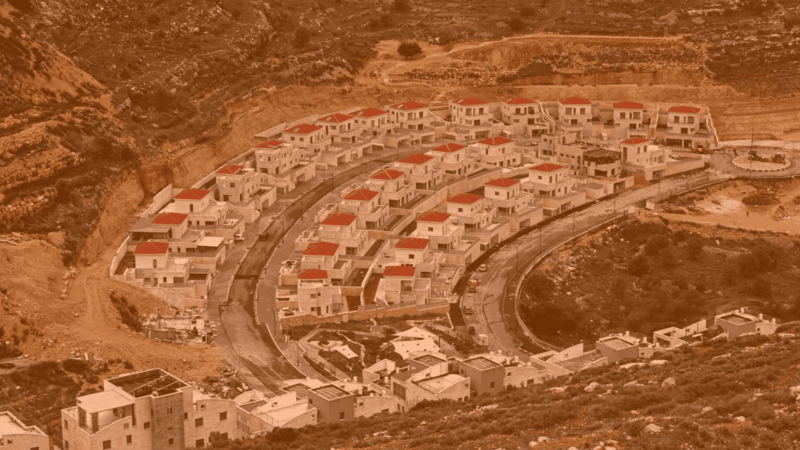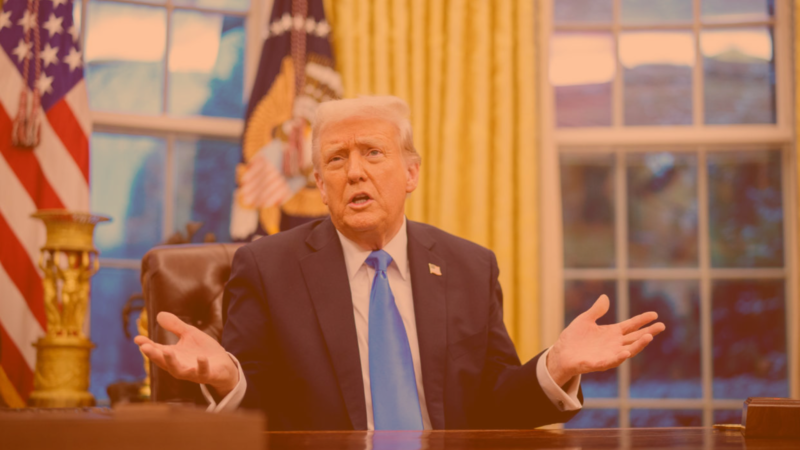In Mons-en-Barœul, situated in Lille’s suburbs, and following a vote by all the members of DiEM25 in Europe, several members of DiEM25 are participating in an election as part of the citizen, ecological, social and solidarity list. Brice Montagne interviewed Nicolas Dessaux one of the candidates in Mons-en-Barœul.
Brice Montagne: Hello Nicolas, can you describe the city of Mons-en-Barœul?
Nicolas Dessaux: Mons-en-Barœul is a city of nearly 22,000 inhabitants in the Lille suburbs. It previously had two centres; the old village where the wealthier residents lived, and a working-class district connected to the steel and textile factories of Lille. In the 1970s, these two centres were linked by a new city formed by many large buildings including the Europe towers, which marks the urban landscape due to its 20 floor height, forming the largest condominium north of Paris. There is a large amount of social housing here, with a higher rate than the national average. Families have origins from all over – Morocco, Poland, Greece, Turkey, and Armenia – over sixty countries in all. A large part of the population works in the trade sector, in neighboring towns, or in insurance as a large company is headquartered in the town.
Mons-en-Barœul was also a benchmark for self-management and local democracy in the 1970s. The socialist municipality had submitted the budget vote to a referendum of the inhabitants, and had created a system to elect, in a consultative capacity, immigrant advisers to represent those who did not have the right to vote. However, over time the following municipalities have dismantled this system of local democracy. The current mayor, elected for 18 years, is a centrist, officially without a party affiliation.
Brice Montagne: How did the initiative “A new breath for Mons” (Un nouveau souffle à Mons), in which several members of DiEM25 participated, start?
Nicolas Dessaux: There were a series of local ecological collectives such as zero waste, as well as elected officials with an ecological sensitivity who broke away from the municipal majority. As time went on, this nucleus grew: union members, members of parents’ associations, sports or cultural clubs, neighborhood associations – in short, the local organizations which constitute the living force of the left in the suburbs. Over the course of the project, a local section of the party “La France Insoumise” become more closely involved, and it elected an LFI deputy to the national assembly.
The activists of DiEM25 were asked, first individually, and then as part of the vote of all members, about whether to participate in municipal elections in several French cities. At this moment, the order of the list is not final, but it is understood that our comrade Nathalie Robillart, member of the national collective of DiEM25 and long-time union activist, will be in a good position.
Brice Montagne: How was the manifesto writing process?
Nicolas Dessaux: From the start, the project was that of a participatory list, open to residents. Even if activists from political movements take part in it and give their support, it is not a question of a coalition of parties. The desire for local democracy begins with this open project.
To write the program, there were three workshop sessions, which brought together a hundred people in total. Each session brought together seven or eight workshops, with five to ten people around each table. The workshops were led by volunteers: activists from DiEM25 led workshops on culture, employment, gender equality and housing. It was a question of stimulating the discussion, sometimes of reviewing the stakes or the possibilities of action of a commune, but especially to listen to the words of the inhabitants so that the program reflects their concerns. Among the proposals, those related to local democracy, the expression of the population, the participative budget and community life have often come up.
At the end of these workshops, the head of the list was selected from two candidates: it was Timothée Lebon, an environmental activist and already municipally elected. He is also founder of the badminton club and well known locally.
Then, there was a collection of information from the two weekly markets in the city: a team asked people about their wishes for the future of the city, questioning them with questions like: “What is what would you do if you were Mayor? ” or “what is missing in Mons? ”. This step was important to broaden the vision, to look outside of the concerns of activists to better understand the expectations of the population.
On this basis, a first draft of the program was established, with no less than 220 proposals. But we had to go further: a team carried out a door-to-door operation, to present the project and listen to other residents.
Finally, meetings were held in each neighborhood of the city, which made it possible to reach people who did not come to the meetings before, including famous figures from the neighborhoods. Gradually, this modified the program.
In the last step, the various program proposals were synthesized together and submitted to the vote of the workshop participants in order to choose the ones that were going to be highlighted. This made it possible to select measures that would not necessarily have been the first choice of activists, but which will well reflect the concerns of our electoral base, such as their desire for a quality centralized kitchen, for schools and retirement homes. This reflects the climate emergency while meeting the needs of the population.

Brice Montagne: What are the main obstacles to overcome in organizing this list?
Nicolas Dessaux: The abstention rate is very high in Mons-en-Barœul , especially in the lower classes. Despite efforts to expand the list’s social and electoral base, it would be futile to claim that it reflects the composition of the Mons population. It remains marked by the classic sociology of the left and ecology in France, by its level of study, its lack of diversity, its concerns. Everyone is aware of this: whether or not we win this election, this is the job that awaits us in the years to come.
In addition, when one engages in municipalism, one must accept at the outset that the program will not necessarily resemble what one had imagined at the start. We go there as residents, with a variety approaches, good or bad, of militant experience, and we simply ask ourselves the question of whether the result is compatible with the values we carry. With the Mons project, I have no doubts on this subject. This naturally raises the question of the link between political movements and “citizen” lists. For my part, I do not see how joining a movement or a party would deprive the quality of citizen, but it is a debate which came back in a nagging way during the process, and we see that certain lists in other municipalities are closed to parties – even if it means structuring itself in a way that is not that different.
The victory is far from assured, but the project is interesting. It offers the inhabitants of Mons-en-Barœul an alternative on the left, which had not happened in a long time. It proposes the union of the left and of environmentalists, which is proving so difficult to achieve in other cities, even while the “people of the left” are demanding it. And for DiEM25, this is a challenge since 2020 is the year of our first participation in municipal elections in France.
Brice Montagne and Nicolas Dessaux are members of the french national collective for DiEM25.
Do you want to be informed of DiEM25's actions? Sign up here















